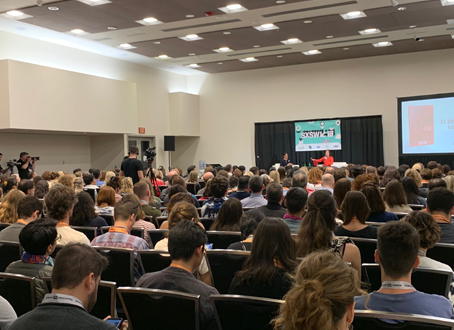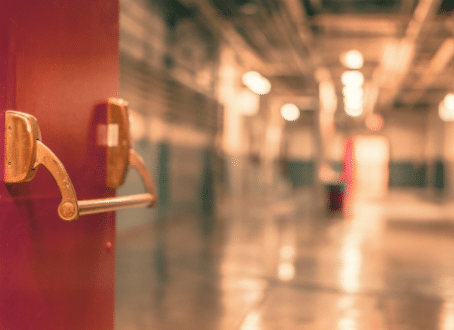Recently I watched a 60 Minutes segment on brain cancer patients at Duke University. These men and women had been diagnosed with a type of brain cancer called glioblastoma. The episode went on to tell the story of the clinical trial that used a re-engineered poliovirus to kill cancer cells. That’s right, polio – a disease that once paralyzed more than 1,000 children worldwide each day. I heard about the trial because of Accelerate Brain Cancer Cure (ABC2), an early funder of the polio vaccine research at Duke. And while it might sound like science fiction, the patients and doctors at Duke have shared hope for the hundreds of thousands of individuals diagnosed with brain cancer each year.
This May, thousands of walkers, runners, volunteers, activists and brain cancer survivors will gather in Washington, D.C. for the world’s largest brain tumor community event – the 18th annual Race for Hope – to support ABC2 and the National Brain Tumor Society (NBTS). I’ve been a supporter of this organization for the past two years for a number of reasons. First and foremost, I have known several individuals who have passed away from brain tumors. Just over two years ago, my dear friend, Shira Levy, broke some disheartening news to me. Her mother Debbie, who had just returned from Eastern Europe on yet another worldly family vacation, was having issues with her balance and her speech. I thought, “this can’t be.” Her mom was a healthy yogi, a businesswoman, and a world traveler, and I thought it couldn’t possibly be true that the woman whose dining room table I had sat around during Thanksgiving was this sick.
Debbie was diagnosed with cancer in the first week of July in 2012. By August, she was unable to walk, and in October she passed away – just 95 days after her initial diagnosis. Her story and her fight was chronicled by Shira’s then fiancée, Dakota, in a photo tribute.
That next year I told Shira about a 5K in D.C. called the “Race for Hope” that was led by ABC2, in conjunction with the Case Foundation and many others. ABC2 was created by Steve Case’s brother Dan, Dan’s wife Stacey, Steve, and Jean Case in 2001 shortly after Dan was diagnosed with brain cancer. It was founded as a nonprofit organization that uses entrepreneurial approaches to bring innovative new treatments to brain cancer patients.
After learning much about the organization during my first year at the Case Foundation I told Shira confidently “You need to sign up for this race in honor of your mom.” She did so, that same week, and “Team Debbie” went on to raise $17,000 to support brain cancer research that first year. I was so proud of Shira and the efforts of her family and friends who had not only honored her mother, but also raised awareness about brain cancer, and thousands of dollars to support the advancements in critical scientific research through research grants and partnerships.
Through strategic partnerships with medical research centers, early-stage biotechnology companies and large multi-national pharmaceutical companies, ABC2 has awarded more than $22 million in brain tumor research funding to qualified physicians and scientists from 42 institutions and companies such as Johns Hopkins in Baltimore, Mass General in Boston, Henry Ford Hospital in Detroit and Dana-Farber in Boston.
The Race for Hope has been a big part of their ability to support these doctors and their trials. Since its inception in 1998, the race has united more than 100,000 attendees and raised more than $20 million for brain tumor research and advocacy. This year’s race includes nearly 600 fundraising teams, and is slated to raise nearly $2.5 million for research. Once again I will join “Team Debbie” in honor of Shira’s mother.
The need to increase research funding for brain cancer is urgent. Nearly 700,000 Americans are living with a primary brain tumor diagnosis. Within the next year, more than 210,000 more will be diagnosed with a primary or metastatic brain tumor. We can find a cure and support organizations like NBTS and ABC2 and their tremendous efforts to raise funds to give families, like Shira’s, hope.
Learn more about the efforts and the race at www.curebraintumors.org





